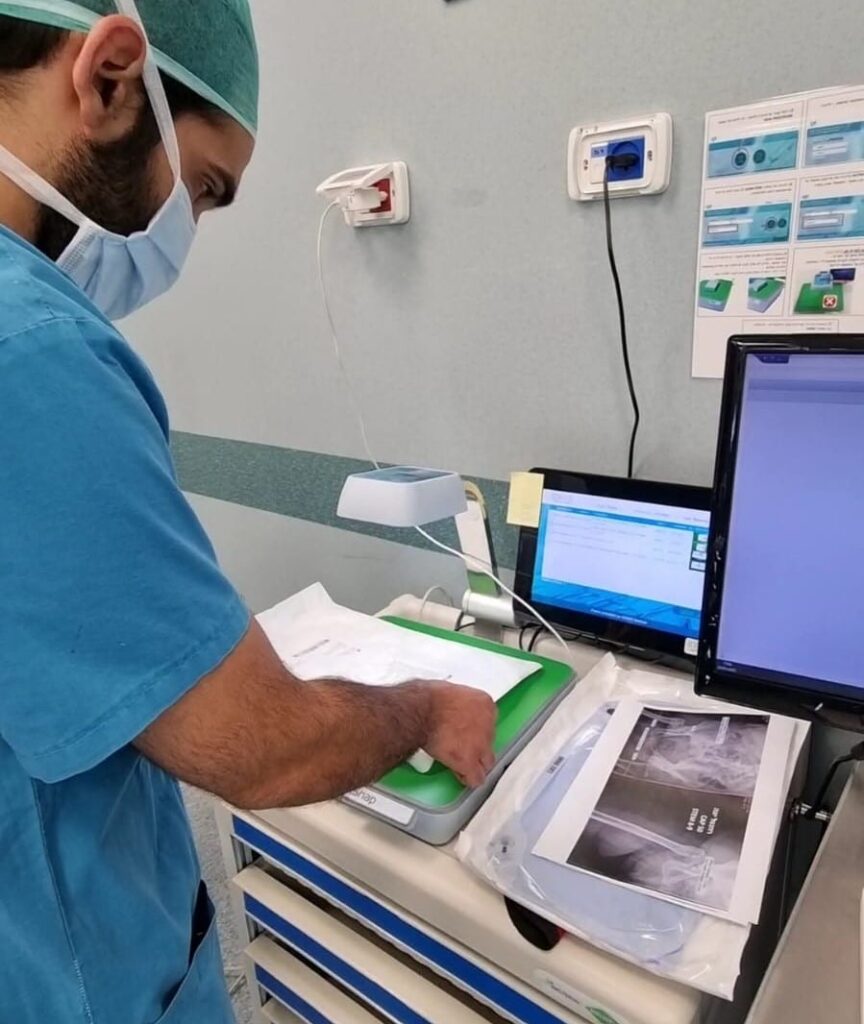What’s inside:
Medical inventory management is going through a transition from being a purely operational issue to being embedded in strategic decision making. This blog will cover:
- The Importance of medical inventory management in the OR
- Moving medical inventory management away from operational necessity towards strategic asset
- The technology optimizing inventory data in healthcare
- Making smarter, data-driven decisions for hospital inventory management
If you’re reviewing your medical inventory management systems and processes, it’s time to expand your horizons from merely operational, to embracing the needs of management.
For C-suite executives, elevating inventory management from an operational task to a strategic priority can be transformative. Leveraging advanced technologies and data analytics and elevating inventory management into a strategic issue can lead to smarter decision-making that streamlines operations, reduces costs, and enhances patient outcomes.
This shift from operational to strategic redefines inventory management as a critical component of organizational excellence, driving significant improvements in healthcare delivery as well as organizational performance.
The importance of medical inventory management in the OR
Medical inventory management was traditionally seen as a logistical necessity encompassing the procurement, storage, and distribution of surgical supplies for timely, high quality patient care.
Despite its crucial role in healthcare delivery, medical inventory management often operates on outdated or manual systems, leading to inefficiencies, inaccuracies, and wasted resources. These failures often lead to stockouts, excess inventory, or expired stock items, all of which can disrupt operating room and surgical procedures, compromise patient safety, and inflate costs.
In addition to these operational challenges, the financial burden of inefficient inventory management can be substantial, with studies indicating that excess inventory, expensive last-minute orders following stockouts, and high wastage through inefficient expiry management, can account for significant losses in revenue for healthcare providers.
It’s clearly time for more inclusive inventory management that embraces strategic managers’ alongside operational staff.
Moving medical inventory management away from operational necessity towards strategic asset
Recognizing the limitations of traditional inventory management approaches, healthcare organizations are increasingly embracing a strategic mindset towards inventory management.
Strategic medical inventory management transcends the operational confines of simply restocking supplies as needed; it encompasses a holistic approach that aligns inventory practices with broader organizational goals and objectives. These may include clinical integration, value-based care, cost-reduction initiatives and more.
By adopting a strategic perspective, healthcare leaders can leverage inventory management as a tool for achieving operational excellence, cost containment, and enhanced patient care.
So, what do C-suite need? The answer is simple. Data.
The technology optimizing inventory data in healthcare
By harnessing the power of innovative technologies, healthcare organizations can transition from traditional, manual inventory tracking methods to sophisticated, data-driven systems that enable strategic inventory management.
- RFID Stock Management: One of the key technologies driving this transformation is Radio Frequency Identification (RFID). RFID tagged medical inventory allows for real-time tracking and monitoring of inventory via an RFID cabinet. Alternatively, tagged items stored on shelving can also be monitored with mobile “wands”. These automated inventory tracking systems “follow” the stock from receiving areas to storage facilities and ultimately to the point or care or operating room itself. This RFID smart cabinet system provides a granular level of visibility provides healthcare providers with accurate, up-to-date information about supply levels, usage patterns, and expiration dates, enabling them to optimize inventory levels, reduce waste, and minimize stockouts.
- AI and Computer Vision: A brand-new development in inventory tracking at the point of use is the leveraging of AI and image recognition technology to add speed and accuracy to supply consumption documentation. This vital data closes the supply chain loop and is crucial for both strategic and operational decision making.
- AI, machine learning, predictive analytics: AI powered, cloud-based inventory management sofware platforms that process the data collected at the point of care can generate real-time metrics, meaningful reports and transformative data analytics.

In addition to supporting organizational management with the inventory data they need, a good platform can act as a single source of truth for inventory data, enabling stakeholders to access shared data that improve transparency (and relationships) among partners.
By leveraging these advanced technologies, healthcare organizations can transform their approach to inventory management from reactive and resource-intensive to proactive and strategic.
Making smarter, data-driven decisions for hospital inventory management
Strategic inventory management prioritizes proactive planning, data-driven decision-making, and continuous optimization of resources, while ensuring the right supplies are available at the right time, in the right quantities.
This approach not only minimizes waste and reduces costs but also enhances efficiency and reliability in OR operations. Furthermore, strategic inventory management enables healthcare organizations to mitigate risks associated with stockouts, shortages, and expired products, thereby safeguarding patient safety and improving clinical outcomes.
By viewing inventory management as a strategic asset rather than a mere operational necessity, healthcare leaders can unlock new opportunities for driving value, innovation, and competitive advantage in an ever-evolving healthcare landscape.
Check out our range of advanced, strategic, inventory management solutions. https://identimedical.com/solutions/






